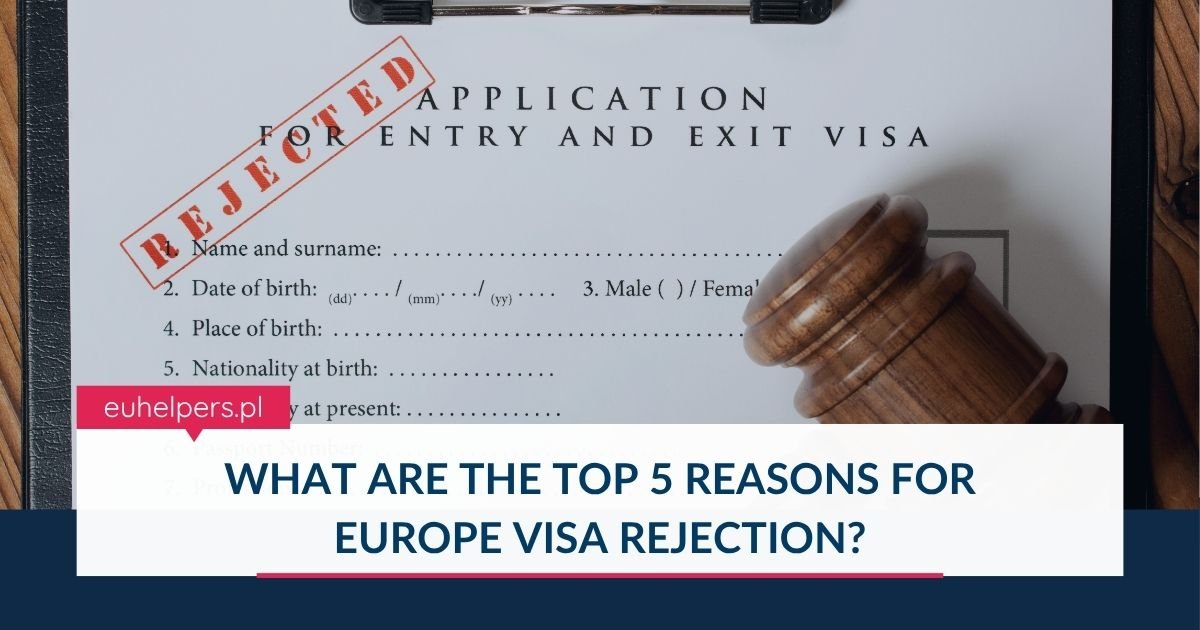Applying for a European (Schengen) visa can be a detailed and sometimes challenging process. While many applicants are successful, a significant number face rejections due to avoidable errors or insufficient documentation. Understanding the common reasons behind visa denials can help you strengthen your application and increase your chances of approval. Below are the top five reasons European visas are often rejected—and how to avoid them.
1. Insufficient Financial Proof
One of the most common reasons for visa rejection is the failure to demonstrate adequate financial resources. Visa officers need to be assured that you can fully support yourself during your stay, covering costs such as accommodation, meals, transport, and other expenses.
What to Do:
-
Provide recent bank statements (typically from the past 3–6 months)
-
Submit proof of income or employment
-
Include sponsor letters (if applicable) along with the sponsor’s financial documents
2. Unclear Purpose of Travel
A vague or poorly explained reason for visiting Europe often leads to rejection. Your travel purpose must be clearly outlined and supported by documentation that confirms your itinerary.
What to Do:
-
Submit a detailed cover letter explaining your travel plans
-
Provide flight reservations, hotel bookings, and, if relevant, invitation letters
-
Ensure the travel dates on all documents are consistent
3. Incomplete or Incorrect Application
Mistakes on the visa application form or missing documents are among the most frequent causes of denial. Even small errors or inconsistencies can raise red flags for visa officers.
What to Do:
-
Carefully review your application before submission
-
Use an official checklist from the embassy or visa center
-
Ensure that all supporting documents (like photographs, ID proof, and itinerary) meet the required specifications
4. Invalid or Inadequate Travel Insurance
Travel insurance is a mandatory requirement for Schengen visa applications. It must meet specific criteria, such as minimum medical coverage and coverage duration.
What to Do:
-
Purchase Schengen-compliant travel insurance with at least €30,000 in coverage
-
Ensure the insurance covers all Schengen countries and is valid for the entire duration of your trip
5. Weak Ties to Home Country
Visa officers need assurance that applicants will return to their home country after their visit. A lack of strong ties—such as employment, family, or property—can lead to doubts about your intention to return, resulting in a rejection.
What to Do:
-
Submit proof of employment or enrollment in school
-
Provide documents showing family ties, such as marriage or birth certificates
-
Include evidence of property ownership or lease agreements
Other Potential Reasons for Rejection
Beyond the top five, other issues can also affect visa outcomes, including:
-
A criminal record
-
Previous visa violations
-
An inconsistent or suspicious travel history
If you've been denied a visa before, addressing the issues noted in the rejection letter and providing additional clarification in your next application can improve your chances of success.
Getting a European visa doesn’t have to be overwhelming—but it does require careful preparation. By understanding the most common reasons for visa rejection and proactively addressing them in your application, you can greatly improve your chances of a positive outcome. Always refer to the specific embassy or consulate’s guidelines to ensure your application is complete and fully compliant.

